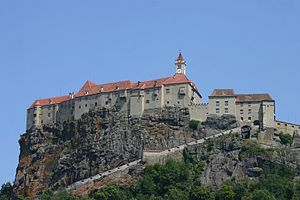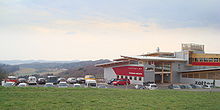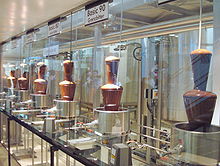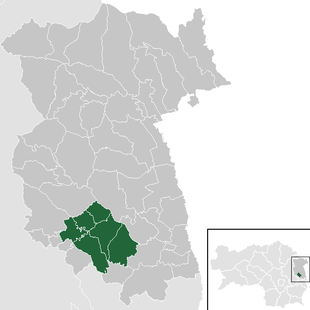Students:Group Two: Martin, Petr, Aggie: Difference between revisions
No edit summary |
|||
| Line 24: | Line 24: | ||
= Sustainable university in Czech Republic = | = Sustainable university in Czech Republic = | ||
We would like to focus in this article on sustainable universities in our country and Austria. | |||
During the field trip we were introduced to the concept of sustainable university of Graz and we liked it as there is no sustainable university in Czech Republic. We will talk about | During the field trip we were introduced to the concept of a sustainable university at the University of Graz and we liked it as there is no sustainable university in Czech Republic. We will talk about Czech experiences with this kind of program and about its possibilities in the future. | ||
As we said there's no such a thing | As we said, there's no such a thing as a sustainable university in the Czech Republic. On the other hand, there have been some student attempts to make their faculties green and sustainable. There was, for example, the Green campus project <ref>http://zelenykampus.biomania.cz/</ref> in Brno or the Green university project led the ACSA center. <ref>http://acsa.cz/zuni/index.php</ref> These attempts were not very comprehensive or professional. The Green campus project is based only on waste management and doesn't deal with other problems. The ACSA project was based on organizing debates. It took two years and didn´t achieve any change. | ||
The sustainable University of Graz <ref>http://urbi.uni-graz.at/de/fakultaet/</ref> tries hard to be CO2 neutral. It implements new and green steps in the lives of students. | The sustainable University of Graz <ref>http://urbi.uni-graz.at/de/fakultaet/</ref> tries hard to be CO2 neutral. It implements new and green steps in the lives of students. The university is partially self-sufficient in green energy as it has a photovoltaic system. The rest of its energy comes from renewable sources. All new buildings have to be constructed in sustainable ways. All the faculties have special waste management. Students are encouraged to use bikes as much as possible by placing bike stands and providing bike service points at each of the faculties. There are organic and fair trade products in the university canteens. Lifts are banned and students are encouraged to walk up stairs. All new students have to attend lectures on sustainability. There is also a department of environmental sciences. | ||
As we are students of Masaryk University we are going to talk about it's potential to be the first sustainable university in Czech Republic. Masaryk university has already had some preconditions that would help to transform it. There is a deprtement of environmental studies at the Faculty of Social Studies wich is the leader of green changes at the Masaryk University.There is a very good waste management and students can even bring their broken electronics to recycle them. The canteen at the faculty sells local bio juices and fair trade tea. There is a copier with recycled paper in the library (they don't have it in Graz) and the university supports electronic datas and studying materials. Teachers and students placed special swift nestboxes below the roof of the faculty. All theese things could be used as fundaments for developping other activities leading to "sustainability" certifying. Next steps could be inspired by the University of Graz. For the beginnig some faculties might place photovoltaic power plants on their roofs and lands or find other renewable sources of energy. | As we are students of Masaryk University we are going to talk about it's potential to be the first sustainable university in Czech Republic. Masaryk university has already had some preconditions that would help to transform it. There is a deprtement of environmental studies at the Faculty of Social Studies wich is the leader of green changes at the Masaryk University.There is a very good waste management and students can even bring their broken electronics to recycle them. The canteen at the faculty sells local bio juices and fair trade tea. There is a copier with recycled paper in the library (they don't have it in Graz) and the university supports electronic datas and studying materials. Teachers and students placed special swift nestboxes below the roof of the faculty. All theese things could be used as fundaments for developping other activities leading to "sustainability" certifying. Next steps could be inspired by the University of Graz. For the beginnig some faculties might place photovoltaic power plants on their roofs and lands or find other renewable sources of energy. | ||
Revision as of 11:05, 23 September 2013
Day 2
After having breakfast we went to Riegersburg castle. There, on the top of the hill, Mario Diethart and Marlene Mader introduced the region of the Styrian Vulkanland to us. The way in which local people started to involve the whole community in local politics was more than inspiring. Their approach was based on many small projects which had an influence on the entire community. In effect, the people of the Vulkanland started to be proud of their region again, which is not the richest or the most industrial, but it's sustainable and independent because of many local producers with original products. We missed hearing someone local who could have enriched the presentation with their personal experiences. There are similar projects in the Czech Republic; for example 'Tradice Bílých Karpat' in the Carpathian Mountains which works on a smaller scale. It could perhaps attract more local people.
Instead of having lunch we visited the Zotter chocolate manufactory where the local 'Willy Wonka', alias Josef Zotter, produces many kinds of 100% Fair Trade and organic chocolate. The manufactury is unique in it's approach to the self-sufficency of production and in it's provocative promotions. They also place an emphasis on the well-being of their employees as well as their cocoa suppliers. They also provoke people with their "Edible ZOO" next to the factory where visitors can watch farm animals and afterwards eat local meat at a restaurant in the middle of the field.
The only thing to criticize was our surprisingly unsustainable violent gluttony during the free chocolate tasting.
The last visit was to Ecoregion Kaindorf, where Joachim Ninaus presented the success stories of their work and the local sustainability efforts. They for example managed to replace plastic bags with paper bags in all shops. They built a charging station for electro scooters and new cycle ways made of "no-oil asphalt" (using tree sap as the substitute additive). The use of mainstream advertising of products and projects is an unusual method that could be put into practice in CZ where similar projects don't have very attractive or cool advertising. They might focus more on common people and youth without fear of using commercial ways of promotion.
There's one fact that we found surprising. Austrians are very proud of using photovoltaic energy. There's nothing bad in it unless you talk about the bad impact on the Third World of conventional power plants and you use photovoltaic power plants as a solution like in Kaindorf. As photovoltaic is a quite controversial source of energy because of using precious or dangerous components acquired in the Third world and because of their complicated recycling.
Sustainable university in Czech Republic
We would like to focus in this article on sustainable universities in our country and Austria. During the field trip we were introduced to the concept of a sustainable university at the University of Graz and we liked it as there is no sustainable university in Czech Republic. We will talk about Czech experiences with this kind of program and about its possibilities in the future.
As we said, there's no such a thing as a sustainable university in the Czech Republic. On the other hand, there have been some student attempts to make their faculties green and sustainable. There was, for example, the Green campus project [1] in Brno or the Green university project led the ACSA center. [2] These attempts were not very comprehensive or professional. The Green campus project is based only on waste management and doesn't deal with other problems. The ACSA project was based on organizing debates. It took two years and didn´t achieve any change.
The sustainable University of Graz [3] tries hard to be CO2 neutral. It implements new and green steps in the lives of students. The university is partially self-sufficient in green energy as it has a photovoltaic system. The rest of its energy comes from renewable sources. All new buildings have to be constructed in sustainable ways. All the faculties have special waste management. Students are encouraged to use bikes as much as possible by placing bike stands and providing bike service points at each of the faculties. There are organic and fair trade products in the university canteens. Lifts are banned and students are encouraged to walk up stairs. All new students have to attend lectures on sustainability. There is also a department of environmental sciences.
As we are students of Masaryk University we are going to talk about it's potential to be the first sustainable university in Czech Republic. Masaryk university has already had some preconditions that would help to transform it. There is a deprtement of environmental studies at the Faculty of Social Studies wich is the leader of green changes at the Masaryk University.There is a very good waste management and students can even bring their broken electronics to recycle them. The canteen at the faculty sells local bio juices and fair trade tea. There is a copier with recycled paper in the library (they don't have it in Graz) and the university supports electronic datas and studying materials. Teachers and students placed special swift nestboxes below the roof of the faculty. All theese things could be used as fundaments for developping other activities leading to "sustainability" certifying. Next steps could be inspired by the University of Graz. For the beginnig some faculties might place photovoltaic power plants on their roofs and lands or find other renewable sources of energy.
The biggest difference between Czech Republic and Austria is the attitude of the governement to the green and sustainable politics. People in Austria are used to think about environmental point of view in everything public they do. All activities leading to sustainability are well doted and being "green" is a kind of the luxury that rich Austria can afford. On the other hand Czechs are very suspicious towards all things organized by the governmet, especially when it relates to something as "useless" and "excessive" as sustainability. The idea is new for them and all the problems that trouble the country like bribing, unstable governement and bad social politics make them believe that environmentalism is something secondary.
That's why activists, NGOs and in our case universities have to find some other ways to get finances, try to get a supprt from the EU and act differently. As Czech universities are not motivated to be sustainable from the side of the governement, we could use the revality between them to give them some motivation. Masaryk University tries hard to be better then Charles University of Prague. Being the first sustainable university would mean a new mark of prestige. If student inciatives supported the idea the way would be paved with success.




